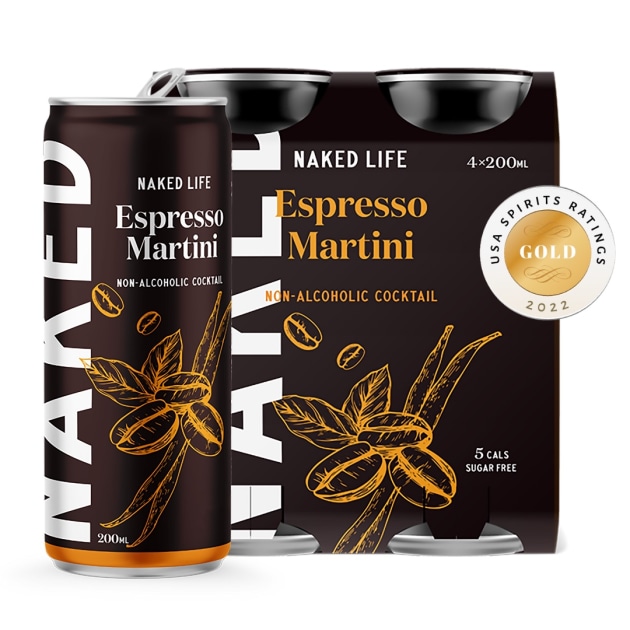Melbourne brand Naked Life Spirits has released Australia’s first non-alcoholic Espresso Martini in a can, which it says is ready in is ready to go, creme and all.
Naked Life Spirits uses cold-brewed coffee, roasted in Melbourne, for an uncompromised taste, picking up gold and beating all the alcoholic versions at the recent USA Spirit awards.

Founder David Andrew said the Espresso Martini is a favourite tipple for the caffeined Australian palate, appearing as one of Australia’s favourite cocktails in a recent survey of Drinksdigest and part of the growing ready to drink cocktail explosion.
“This cocktail is particularly close to our heart. We crafted it with premium, cold-brewed coffee to ensure an uncompromised taste”, said Andrew.
The quality of the ready to drink non-alcoholic market has seen a new habit emerging, with the birth of the “middie” cocktail, a trend to add small nips to ready-to-drink non-alcoholic options.
Dry But Wet founder and specialist in lo-no alcoholic drinks Amy Armstrong, witnessed this trend first hand at the international Wine And Spirits competition where she was part of the judging panel.
“Non-Alc is now reaching new heights in flavour and experience, with brands like Naked Life and Goat drinks’ Myth spirits creating innovative flavours that mimic even the most complicated of cocktails and tastes,” said Armstrong.
The Naked Life Non-Alcoholic Espresso Martini is available at Woolworths, together with a new Non-Alcoholic Cosmo, Mojito and Rose Sangria Spritz.





